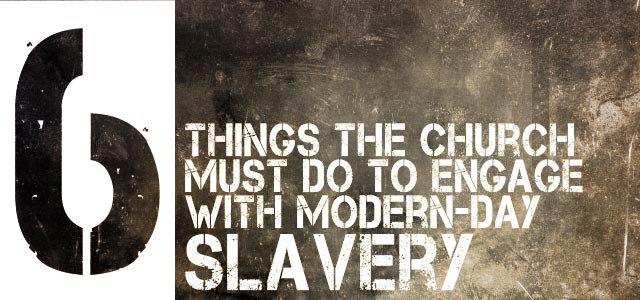
By trusting them to know the situation. When we are committed to humble partnerships, we begin to earn a voice at the table. But when we start thinking we deserve a voice at the table, we discredit ourselves and further alienate the church from any hope of credibility with this issue.
6. Bringing the problem down to size, without losing its cost
We need to learn to help people engage modern-day slavery right where they are. My friend Alex Shootman is always telling me that if you use your platform to preach the problem, you have to shrink the problem down if you want others to engage it. If we can’t do this, people will be overwhelmed and thus paralyzed by the idea of involvement. So let me close with a few ideas that you and your congregations can begin with now.
Lament as Prayer
Emmanuel Katongole and Chris Rice define the biblical idea of lament as “a cry directed to God by those who see the truth of the world’s deep wounds and the cost of seeking peace … to learn lament is to become people who stay near to the wounds of the world.” To have weekly, monthly, quarterly lament-prayer meetings with your family or community group is a great way to begin to settle and center one’s heart on the reality that our first step is to cry out to God, for God’s action on behalf of the poor, the oppressed, the marginalized and enslaved.
Study Groups/Book Clubs
There are many great resources about slavery (I’ve listed those at the bottom). One of the best ways to engage this issue is to form community groups around this issue. Pick a book, assign it, read it and come back in four weeks ready to discuss it.
Awareness Nights
Plan awareness nights at your church or through a couple of community/home groups. It could be as simple as asking a few of the Allies team members to come in to talk about slavery. You could bring a group of people together and show a film, and then do a panel discussion with some of the Allies team or with members of your circle that have studied and engaged with the issue.
Conscious Consumerism
I believe this is the most practical way to get people involved. Not only does it confront our own heart issues of privilege and demand, but it allows us to effectively engage by doing what we already do—consume. It’s great to do these around the holidays when consuming is at an all-time high.
Further Resources:
The Slave Next Door by Kevin Bales
Disposable People by Kevin Bales
Human Trafficking: A Global Perspective
Trade in Hope film (soon to be released)
The Dangerous Act of Loving Your Neighbor by Mark Labberton (while this is not a resource on the issue of modern day slavery, it is, in my opinion, the best resource for individuals and small groups on turning a spotlight on our own hearts with issues of injustice)

